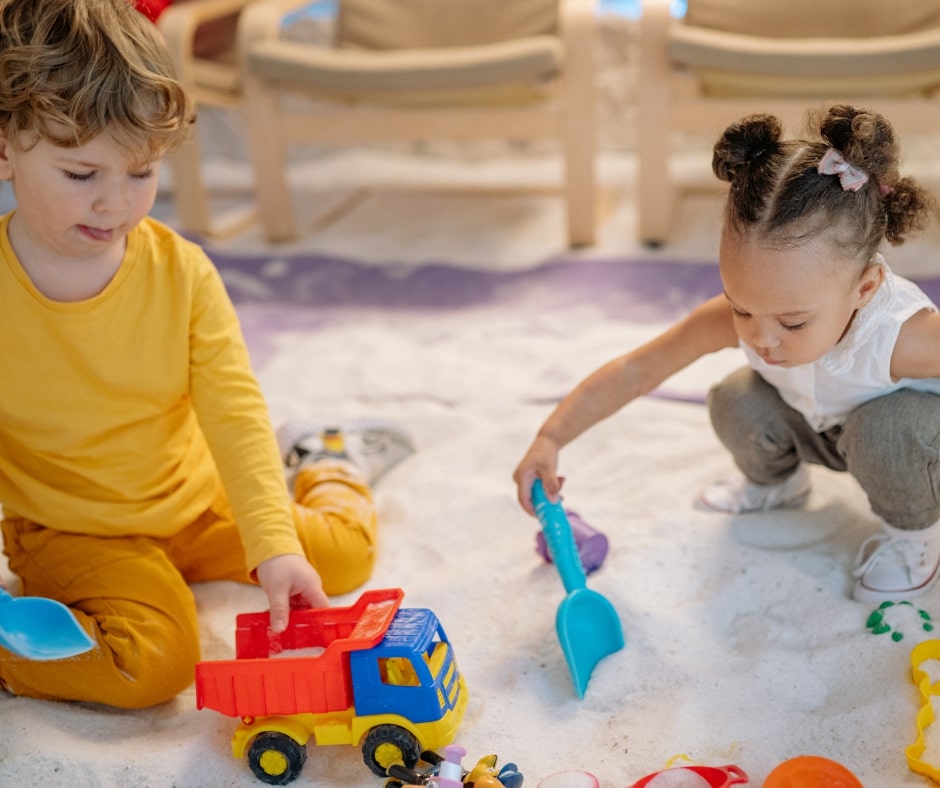Why Is Hands-On Learning So Effective? We use our 5 senses every day. Sound, smell, touch, taste, and sight. From the moment we are born these senses come to life and we use them to learn about the world around us. When we enter a classroom, however, we typically use what senses to learn? Sight to see what’s on the…

5 Long Term Benefits of Quality Early Childhood Education
January 13, 2023
5 Ways Early Childcare Can Help with Social Skills
February 28, 2023If you have spent any amount of time looking into quality early childhood education programs for your little one, you have probably heard of playing as a form of learning. While learning through play is not a new concept, it has recently been backed by several studies as an effective way for children to be educated.
At TLC Schools, we like to incorporate play in our classrooms whenever possible, as to provide the highest quality and most enjoyable learning experience! Let’s take a closer look at what playing as a form of learning is, how it can be achieved, and why it is so effective.
What?
Playing as a form of learning is exactly what it sounds like: learning through play! Children are constantly interacting with the world around them and discovering more about themselves, others, and the way things work. This means that even when the subject matter isn’t being taught, there are valuable lessons that can be learned simply through playing.

How?
Considering that so much learning already occurs through play, how is it possible to actually utilize playing as a form of learning formal academic subjects? This can be achieved by creating interactive learning environments that engage multiple senses and encourage participation from students. By forming lessons around activities instead of trying to make activities fit lessons, the priority shifts within the classroom, and play is more effectively placed front and center.
Why?
Now that we’ve talked about what playing as a form of learning is, as well as how to accomplish it, it is essential to understand why educators need to make a conscious effort to take this approach. After all, children are in school to learn, so why is play so important?
To start, learning through play involves multiple senses, and studies have shown that this increases cognitive development. Children who interact and participate in their classrooms are more likely to retain the information being taught. In addition, when the subject matter is taught through play, children are also more likely to understand the information more quickly.
Second, playing as a form of learning is more enjoyable than simply sitting still and listening to a lesson. Encouraging children to learn while doing something they are already good at boosts confidence in their skills and aids in creating a lifelong love of learning.
Lastly, play can not only help children learn important (and otherwise not-very-exciting) subjects such as math, it can also help develop their social, emotional, and motor skills. Because playing gives them hands-on experience, they learn how to navigate many different scenarios, recognize and address their own feelings, and interact with others, as well as the world around them.
Playing as a Form of Learning at TLC Schools
It’s obvious that playing as a form of learning has many benefits in early childhood education. This is why we incorporate play into our classrooms at TLC Schools as much as possible. If you want to learn more about TLC Schools, get in touch with us and schedule a tour today to see why we have been voted the best preschool in Plano. See you soon!








